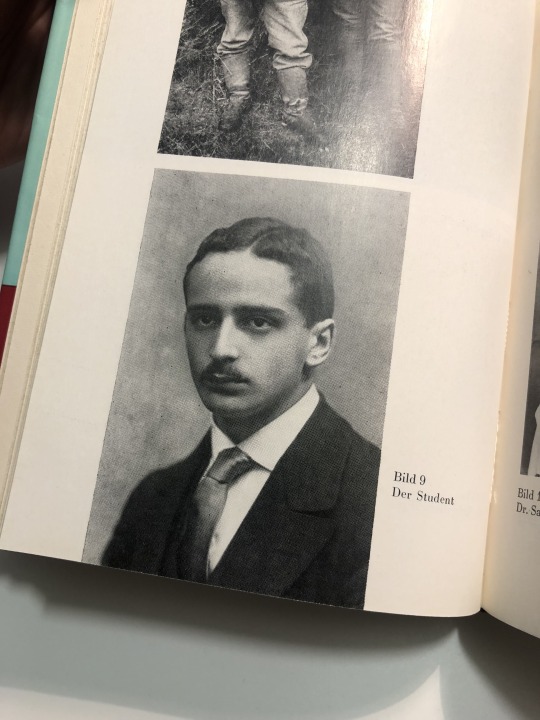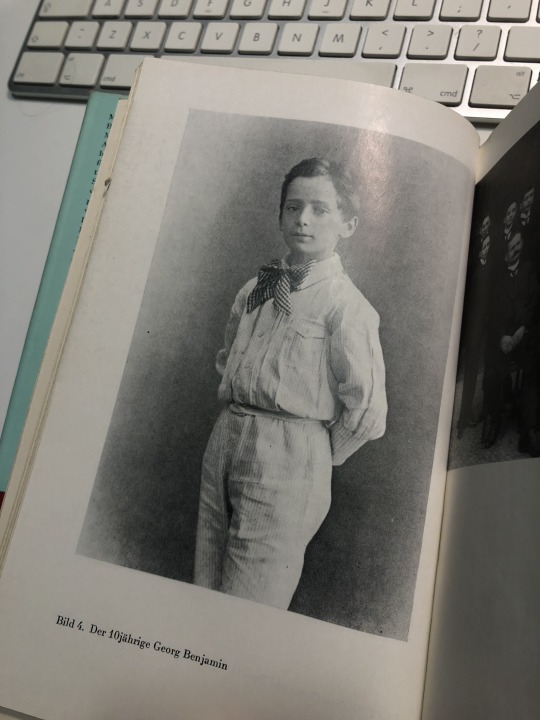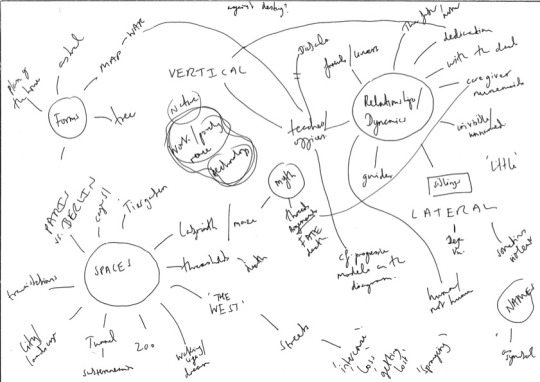Photo
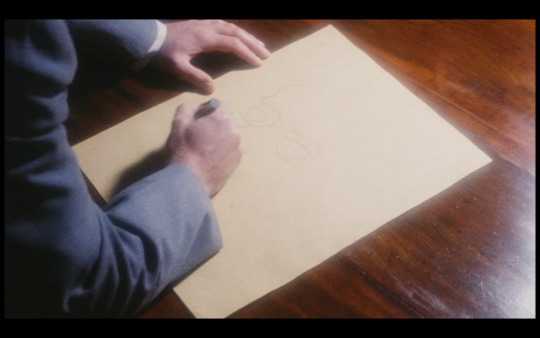
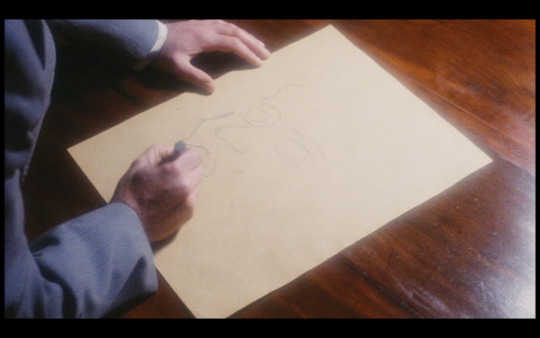

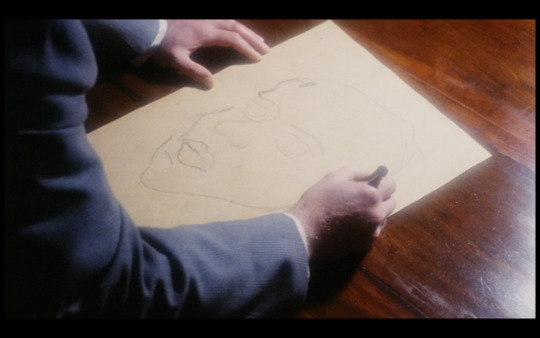



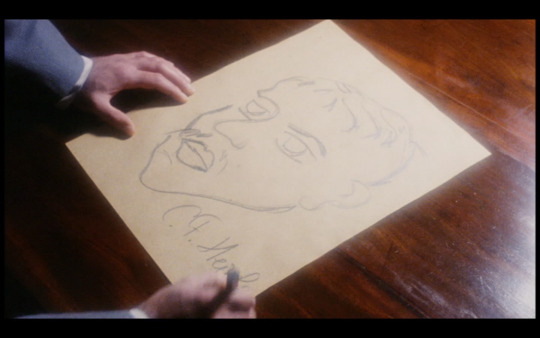
Walter Benjamin (played by Quim Lecina) drawing Fritz Heinle in “La última frontera” (dir. Manuel Cussó-Ferrer, 1992)
2 notes
·
View notes
Text

Carl Skoggard maps the connects between WB (Walter Benjamin), DK (Dora Kellner), ES (Ernst Schoen), JC (Jula Cohn), AC (Alfred Cohn), GR (Grete Radt), and FR (Fritz Radt).
0 notes
Text
This letter says so much:
Freiburg
July 8, 1913
My most esteemed Miss Seligson,
Thank you for your letter. It arrived here in Freiburg and did not come as a total surprise. Let me formulate what you have written and I have experienced here as the One Question: How are we to save ourselves from the lived experience of our twenties?
You may not know just how right you are—but one day we will really notice that something is being taken from us (not that we had it too long, but they are not going to let us hang on to it anymore). All around us we see those who once suffered the same thing and saved themselves by taking refuge in coldness and superiority. It is not that we fear what we are experiencing, but rather the dreadful result: that after the lived experience we will become numb and assume the same cowardly gesture unto eternity. These days, I often recall Hofmannsthal’s lines:
and that my own I, restrained by nothing
glided over out of a small child to me
like a dog, eerily mute and alien.
Is this not true? that the question for us now is whether these lines are to come completely true, and whether we must choose this kind of existence simply in order to defend ourselves from the others, who are also so “eerily mute and alien.”
How can we remain true to ourselves without becoming infinitely arrogant and extravagant? People want us to fit in without complaint, and we are completely ridiculous in the solitude we want to preserve—and we cannot justify that.
I felt this when I came here, having let the familiar circle of my Berlin friends; I discovered aloofness, incongruities, nervousness—now I have become acquainted with loneliness for the first time; I turned it into a lesson for myself by spending four days hiking alone through the Swiss Jura—completely alone with my exhausted body.
I am still unable to tell you what kind of tranquility I have achieved with this solitude. But in my first letter to you, when I so fulsomely praised my room with its window looking out onto the church square, it signified nothing but this tranquility.
I have completely divorced myself from someone who was the reason I came here; because at the age of twenty-two he wanted to be a forty-four year old like many of the most spiritual young people around us. It is quite true that now, at the age of twenty, I have not the slightest guarantee that the life I am leading will be a success: I am very busy supporting Der Anfang by organizing the divisions and I am separated from my friends. During the first weeks of my stay in Freiburg, these friends received letters that were uneven, confused, sometimes depressed. For two days, I was thoroughly unhappy here in Freiburg.
So in recent weeks I have worked very quietly for the Anfang. You will find my article, “Gedanken uber Gerhart Hauptmanns Festspiel” [Thoughts on Gerhart Hauptmann’s Festspiel], in the next issue, and in the September issue an essay, “Erfahrung.”
My father visited me a few days ago, and I was surprised at how very reserved and friendly I was. (Of course my father is opposed to my aspirations.) I assure you that this is so without the least trace of arrogance.
Why is it? Recently I saw a schoolboy on the street. I thought: you’re working for him now—and how alien he is to you; how impersonal your work is. Meanwhile I took another look at him. He was carrying his books in his hands and had an open, childish face with only a slight overlay of schoolboy blues. He reminded me of my own school days: my work on the Anfang no longer seemed at all abstract, at all impersonal.
I really believe that, for the second time, we are beginning to feel at home in our childhood, which the present wants to teach us to forget. We need only to live in rational solitude, somewhat less concerned about this difficult present and about ourselves. We will steadfastly rely on young people who will find or create the forms for the time between childhood and adulthood. We are still living in this period without these forms, without mutual support—in short: alone. I do believe, however, that one day we will be allowed to move very freely and confidently among the others, because we know that the multitude of others are no more “eerily mute and alien” than we ourselves. How do we know that?
Because we wanted to mobilize the openness and sincerity of children who later will also be twenty years old.
Think of the secretive and noble gestures of the people in early Renaissance paintings.
I hope you won’t be annoyed if these words, which could be uttered only from my point of view, failed to touch on anything of importance to you, if I made the mistake of keeping my remarks too general. But you will surely agree with me that everything depends on our not allowing any of our warmth for people to be taken from us. Even if, for a while, we must preserve this warmth in a less expressive and more abstract way, it will endure and surely find its form.
My most sincere regards.
Yours, Walter Benjamin
0 notes
Photo

Death notice of university professor Leon Kellner (English lexicographer and zionist; father of Dora Kellner)
0 notes
Photo

i finally found (and almost compiled) Dora Kellner’s novel ‘Gas gegen Gas’ which first appeared serialised in the Südwestdeutsche Rundfunkzeitung (1930), and then, for a second time, as ‘Das Mädchen von Lagosta’ in the Innsbrucker Nachrichten (between 24 December and 1931–7 May 1932) and in the Grazer Tagblatt between (25 December 1931–8 May 1932)
0 notes
Text
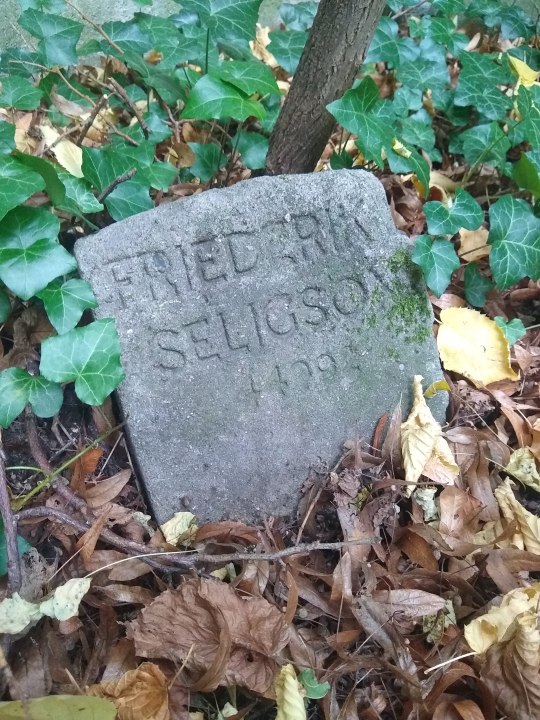
Today Juni and I went to Weißensee cemetery. We found the family graves of the Seligsons. We saw blue-stained glass. We saw art nouveau ironwork and tumbled trees. We looked for Traute but couldn’t find her and Willi Caro but also couldn’t find him. We did, however, find Rika, huddled behind a grand corner mausoleum. The stone is modest. That she took her own life means no date is given, only her name and the grave number, equated in size. It was moving moment to find her grave and I wonder if to return on 8 August, the date of her death, to mark what the stone cannot
1 note
·
View note
Photo

The video below comes, perhaps, from this schedule, from the Radio Times, Thursday 22nd October 1937, where Charlotte Wolff presented 'The Hands of Chimpanzees’, with Alan Best (who, it seemed, worked with Julian Huxley and was a curator at the Zoo), part of the Experiments in Science series. Chimpanzees lent by the London Zoological Society.
Others programmes in the series include:
7 October 1937 | Professor Mary Waller will show some of the unique properties of solid carbon dioxide
4 November 1937 | Cyril Burt, D.Sc , Professor of Psychology, University College, London, demonstrates the tests which have been devised to estimate intelligence and vocational aptitudes
16 December 1937 | Reconstructing the Past. A demonstration conducted by Margot Eates, of the Institute of Archaeology
Images of these Chimpanzees’ hands appear as prints throughout Wolff’s work.
0 notes
Video
youtube
Charlotte Wolff on Television Demonstration Film from 1937. She reads the hands of Jasmine Bligh, who was a presenter at the time. Her accent is so clipped, I have watched it over and over again
0 notes
Photo
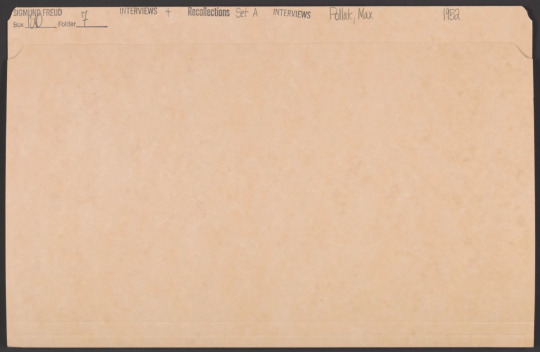
Eva Weissweiler, in her book about Dora Kellner, mentions how Max Pollak was seen by Freud. He suffered from insomnia, due to a ticking clock, and so, rather than remove the clock, his mother sought treatment for him, thinking it would toughen him up. (Max also have also nervous conditions). I tracked from the source and there it was: a conversation between Max Pollak and Kurt Eissler, the founder of the Freud Archive what is now at the Library of Congress (the one about which Janet Malcohm writes that book). The transcript can be found here. At first I was skeptical, that it might have been another Max Pollak, but he refers to his mother as a Loew-Beer, which she was. It contains other details too: that he was premature as a baby, that he played the piano, that he had a talent for Maths and Greek, that he spent time in a sanatorium, that he had spots. It is quite a remarkable document that I want to think more about.
0 notes
Photo

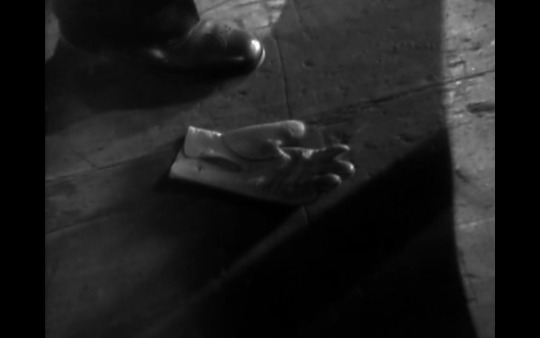

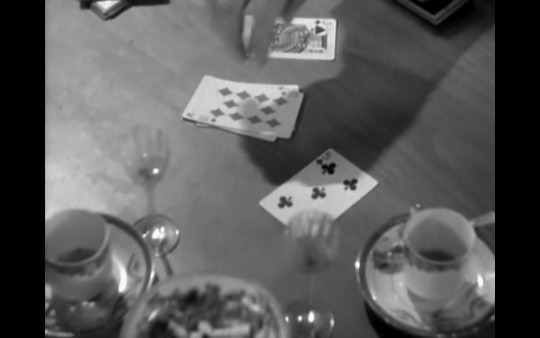

in the heat of the evening, I watched Hat, Coat and Glove, a 1934 American pre-Code crime drama film directed by Worthington Miner. Francis Faragoh adapted it from the original play by Wilhelm Speyer, who appears on the diagram from Helen Grund. In the film, fashion becomes exhibit in a count room (Grund’s influence perhaps); as does the hand (Lotte Wolff’s perhaps)
0 notes
Text

Hugo Ball and Emmy Hennings and Anne Marie Hennings are all buried at Saint Abbondio cemetery in Switzerland
16 notes
·
View notes
Photo
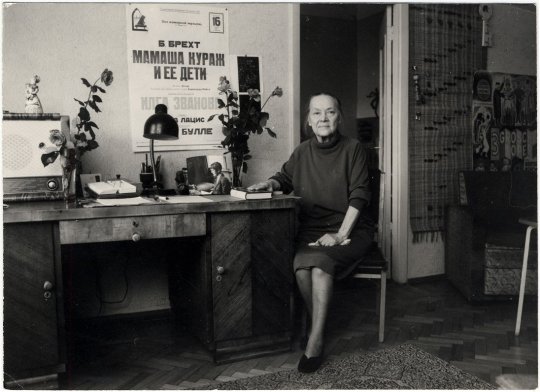
late picture of Asja Lācis in Riga apartment
1 note
·
View note
Photo




in this article Moses Marx talks about The Astrological Works of Abraham ibn Ezra, which has a diagram on the first page, that might be of interest
0 notes
Text
At one point, Walter Benjamin and Helen Grund planned to travel together through Brandenburg by car (with her driving), collaborating on a series of pieces for the Frankfurter Zeitung. The plan was never realized.
0 notes
Photo
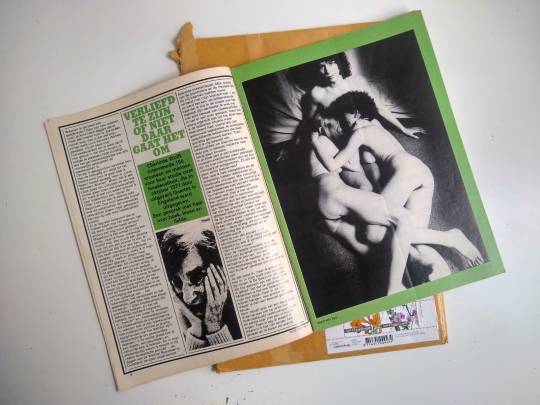

I found this magazine on eBay, from 1978, with an interview with Charlotte Wolff inside, in Dutch, about lesbianism and bisexuality (as far as I can tell)
1 note
·
View note
